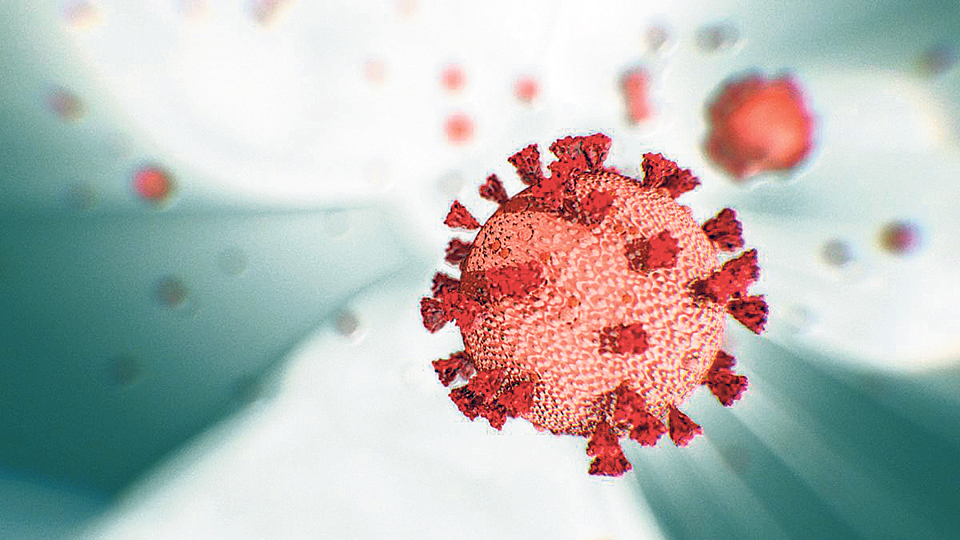
OR


Samagya Koirala
The author is a student of Bachelors of Public Health (BPH) program at Nobel College, Kathmandu.news@myrepublica.com
More from Author
This is not the time to celebrate the ending of lockdown. Everyone must be alert and understand that small carelessness can lead to a big public health catastrophe.
The Covid-19 has affected the whole world. Even the most developed countries seem to be struggling to reduce its impact. The situation is worse in underdeveloped countries like Nepal. In Nepal, Covid-19 has affected all sectors—bank, tourism, trade, industry, education and aviation. The supply chain of raw materials, vegetables and other food items has been disrupted. We don't know how deep the economic fallout will be.
So what should we as a country and people do?
Vaccine development against corona virus is in process, but it may take at least a year for the vaccine to be produced in mass scale. Social distancing is the most important measure. This also includes seeking remote medical advice and not attending large gatherings or going to the crowded places. It is also important to wash our hands to make sure nothing is left on our hands that can make us susceptible to the disease. Lockdown was lifted on July 22 but the risk remains. Thus we need to follow the advised norms of social distancing until the outbreak can be contained. If we confine ourselves to our homes as much as possible, we can play our part in reducing deaths from Covid-19.
In Nepal, the first Covid-19 case was reported on January 22. Only then we intensified the construction of quarantine and isolation facilities. Schools and old buildings were converted into quarantine centers but they were not hygienic and safe enough. There was no provision of drinking water, toilets, security and not even health checkups which led to incident such as suicide, rape and sexual abuse. Some patients died without getting medical treatment.
We failed to comply with the World Health Organization (WHO) standards for corona virus control. Though the Covid-19 infection arrived Nepal late, we failed to make good use of the time we had. In some of the quarantine centers I visited there were not even separate sleeping facilities for men and women.
Covid-19 has had huge psychosocial impact on people. Panic, anxiety, paranoia, depression, and post-traumatic stress disorder are seen in many people. These factors have led to the rising cases of suicides—more than500 suicides have been recorded in Nepal per month. Setting up mental health institutions for psychosocial preparedness is inevitable.
We have become accustomed to understanding health education only in relation to doctors. As a result, only doctors and nurses are known as the human resource of the health sectors. Many young people are studying in various fields of health sector. But there was no policy to bring them all together.
There are reports of stigma against suspected patients of coronavirus, their families and service providers. The state must take proactive steps to address such stigma. Care must be taken by media and official communication that affected persons are not shamed into believing they are responsible for the disease.
The state agencies need to be more responsible during such times. They should be sensitive, honest and people-friendly. There should be a clear guideline as to which agencies should address the concerns of the people, on the basis of subject matter and expertise. Public announcements relating to the virus should come through the experts. As soon as the message is spread that the state machinery is honest, transparent and all efforts are being made to the best of its ability, the people start trusting these institutions. Public awareness programs through public health activists and elected local representatives can be impactful.
The state should ensure food security during such times. It is the responsibility of local community to provide food to household where members are under home quarantine. The state needs to ensure that the daily wageworkers have access to food.
The nature of the coronavirus varies from place to place. We have reached the conclusion that infection has not spread in the community by looking at the fact that the number of infected people has decreased due to the reduction in the scope of testing. We are happy to see less people being infected and we were happy when the lockdown was lifted on July 22.
These are the wrong assumptions. What if the community infection starts? What are our plans to address it? Do we have enough human resources to mobilize in case of community spread? Do we have enough infrastructure? Concerned authorities need to take these questions seriously.
Experts have started expressing concern that the number of infected people in the Kathmandu Valley is increasing. The second wave of the virus has started in some countries, including China. Many asymptomatic cases are being reported. This is not the time to celebrate the ending of lockdown. Everyone must be alert and understand that small carelessness can lead to a big public health catastrophe.
The author is a student of Bachelors of Public Health (BPH) program at Nobel College, Kathmandu.
You May Like This

Moving towards a new normal
Coronavirus pandemic has engulfed almost all countries around the world. The number of infected person and subsequent death has reached... Read More...

Is COVID-19 killing democracy?
BRUSSELS – The economic consequences of the COVID-19 crisis occupy almost everyone’s thoughts and conversations. And for good reason: the... Read More...

Lockdown Lessons
Divya Mittal, a clinical nutritionist at Tesla Diagnostics Clinic, has been exercising and meditating ever since the lockdown started. And... Read More...





Just In
- NRB introduces cautiously flexible measures to address ongoing slowdown in various economic sectors
- Forced Covid-19 cremations: is it too late for redemption?
- NRB to provide collateral-free loans to foreign employment seekers
- NEB to publish Grade 12 results next week
- Body handover begins; Relatives remain dissatisfied with insurance, compensation amount
- NC defers its plan to join Koshi govt
- NRB to review microfinance loan interest rate
- 134 dead in floods and landslides since onset of monsoon this year












Leave A Comment